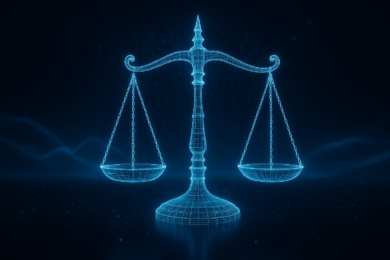On 23 July 2025, the International Court of Justice (ICJ) delivered its long-awaited advisory opinion on the obligations of states in relation to climate change. The […]
PECA Amendment 2025: Expanding Cybercrime Laws or Silencing Dissent?
The speedy enactment of the Prevention of Electronic Crime (Amendment) Act 2025 from the Parliament of Pakistan 2025 unfolded many tales. This Act, in its object […]
Fatherhood and Family Law in Pakistan: Rethinking Custody, Maintenance, and Guardianship
They say the law is no respecter of persons, but in matters of family, it often takes sides- quietly, consistently, and without ever quite saying so. In Pakistan, the letter of the law bestows guardianship and financial obligation squarely upon the father’s shoulders. He is to provide the bread, pay the bills, and underwrite the children’s future. Yet when it comes to the actual care, presence, and upbringing of the children, the soul of fatherhood, he is more often than not left out in the cold. This article takes up the cause of the forgotten father: not the negligent one who flees his duties, but the one who is dutifully bound, yet legally denied.
Afghanistan’s Gender Apartheid Faces Justice
On the morning of August 15, 2021, many woke up to scenes of terror and devastation flowing out of Kabul. As the Taliban retook control of […]
Israel, Iran, and the Death of the Nuclear Bargain
The war might have stopped in a ceasefire, but its tremors continue shaking off the regional order. The unprovoked attack by Israel on the nuclear facilities […]
Understanding Copyright in Digital Content: Reels, Memes and the Legal Grey Zone
The rise of platforms like Instagram, TikTok, and YouTube has transformed content creation, with short videos, memes, and music-driven clips forming the language of online culture. […]
Justice Between Parents: Rethinking Custody Jurisprudence in Pakistani Family Courts
In the quiet corners of family courts, louder than the gavel, rises the cry of a child, caught between parents who once loved and now battle. Custody disputes, though dressed in legal robes, are not merely matters of law. They are matters of the heart.
Love has turned sour. Trust has turned to dust. And so, the court is called—not just to decide—but to guide, not as a cold umpire of rules, but as a guardian of what truly matters
Digital Warfare: Prisoners of War, Propaganda, and Accountability
Abstract In the sprawling labyrinth of modern warfare, where battles are no longer fought solely in trenches and on distant battlefields, a new arena has emerged: […]
Partition Litigation in Pakistan: A Legal System Trapped in Time
“The law of the land is also the law of generations.” In Pakistan, few legal disputes carry the same level of emotional and generational weight as […]
Strengthening Pakistan’s National Commission on the Rights of the Child( NCRC)
Pakistan is home to over 112 million children, nearly half of its population, yet millions continue to face severe challenges, as highlighted in the State of […]
Justice on Paper: The Gap Between FIR Law and Reality in Pakistan
The Code of Criminal Procedure, 1898(hereinafter referred to as Cr.P.C.), provides for the office of Justice of Peace to maintain public peace and order, and to […]
AI, Fair Use, and Piracy: What Bartz v. Anthropic Means for Pakistan’s Copyright Future
The rise of generative AI has unlocked new frontiers in how machines read, write, and reason, but what happens when this intelligence is built on a […]
Eighteen Is Not Western—It Is Constitutional, Islamic, and Just
The critics’ lament—“But that’s westernization!”—rings hollow. When Islamabad passed the Child Marriage Restraint Bill in May 2025, it did not just legislate; it made a statement. […]
A Guide to Medical Malpractice Litigation in Sindh, Pakistan
The Sindh Healthcare Commission Act, 2013 (the SHCC Act) was enacted with the object and purpose of establishing the Sindh Healthcare Commission (the Commission), i.e., an […]
Protecting Corporate Identity: Arguing for the Separate Legal Entity Principle
A company has been established as a separate legal entity in the case of Salomon[1], and courts have further elaborated on the corporation being its own […]
From Rejection to Reality: The Return of Solar Panel Tax in Pakistan
As the world races toward renewable energy, Pakistan has taken a step back, taxing solar panels just when they became a lifeline for the middle class. […]
Court Martialing Civilians
Picture fair trial: an independent forum, an impartial judge, a detailed judgment, and a substantive right of appeal. Now, picture its absence: court-martials. Trials where guilt […]


